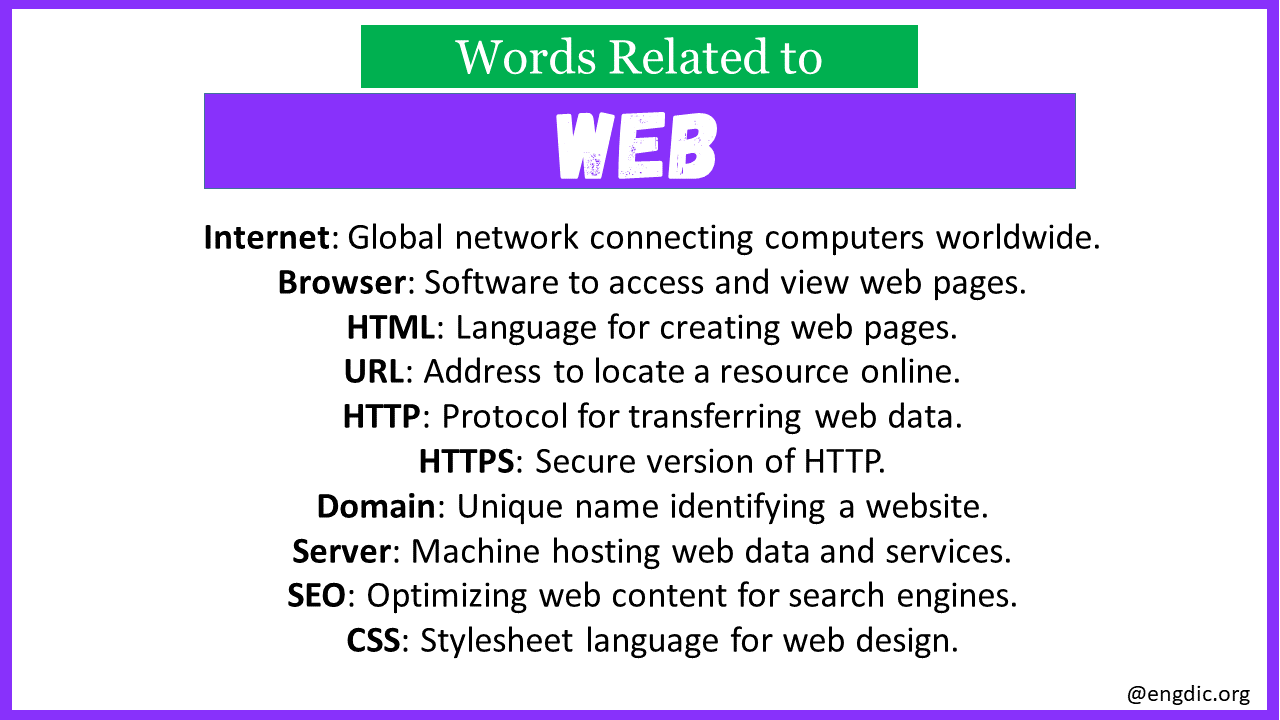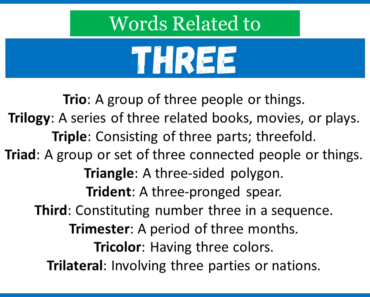The term “web” is commonly associated with the World Wide Web, which forms an integral part of our daily lives. It’s also connected to the broader domain of Internet technology, web development, and digital interaction. Understanding the vocabulary related to “web” is essential for anyone wanting to engage with or understand this ever-evolving field.
Words Related to Web
Here are the top 30 terms related to the web with meanings:
- Internet: Global network connecting computers worldwide.
- Browser: Software to access and view web pages.
- HTML: Language for creating web pages.
- URL: Address to locate a resource online.
- HTTP: Protocol for transferring web data.
- HTTPS: Secure version of HTTP.
- Domain: Unique name identifying a website.
- Server: Machine hosting web data and services.
- SEO: Optimizing web content for search engines.
- CSS: Stylesheet language for web design.
- JavaScript: A programming language for web interactivity.
- Bandwidth: Rate of data transfer over a network.
- Firewall: System to block unauthorized access.
- Database: Collection of organized data for web use.
- Webmaster: Person responsible for managing a website.
- Hosting: Service providing web server space.
- Plugin: Software add-on enhancing browser features.
- Cache: Temporary storage for quicker data retrieval.
- Cookies: Small files storing user settings.
- Responsive: Web design adapting to screen sizes.
- Backend: Server-side logic of a website.
- Frontend: User interface of a website.
- API: Set of rules for building software applications.
- Encryption: Converting data into a code for security.
- Query: Specific request for data retrieval.
- CMS: Content Management System for web content.
- Meta Tag: HTML tags providing metadata.
- Webinar: Seminar conducted over the web.
- Crawler: Program scanning the web for indexing.
- UX/UI: User experience and user interface design.
Explore More Words:







